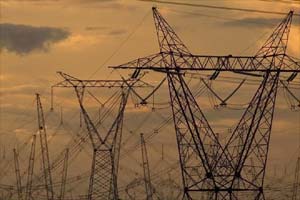Even as private power producers with untied capacity are hoping to sign power purchase agreement (PPAs) with two states — Andhra Pradesh and Uttar Pradesh — they are anxious tariff levels could be unprofitable given the large surplus of power available. The Andhra Pradesh government has announced it is looking to buy 2,400 MW and tenders are slated to open on June 25. Given that in the recent past the state has been compelled to buy expensive power generated by gas-based units, this time around it would look to procure electricity at a cheaper tariff.
The purchase by the Andhra government will be the biggest long-term purchase of electricity in the country in the last four years. The stiff competition should see Andhra Pradesh procuring electricity at tariffs that were lower than in 2012, when it negotiated PPAs at an average levellised tariff of Rs 4.82 per unit.
Meanwhile, the Uttar Pradesh government is readying to negotiate the purchase of 3,800 MW and should sign PPAs in a couple of months. In 2012, the state was looking to buy 6,000 MW of power but ended up signing PPAs for for only 2,175 MW. It is now completing the purchase of the remaining amount, following some prompting by the state electricity regulator. “We have appointed consultants and are moving ahead to buy close to 4000 MW,” SK Agarwal, CFO, UPPCL, told FE.
While the sale of 6,200 MW via long-term PPAs should help revive the fortunes of the sector, power generators remain cautious since the total untied capacity in the country is more than three times — 20 GW — than the current round of procurement.
Industry insiders believe that power producers whose plants have been up and running for months without PPAs in place would want to ink pacts to be able to utilise their assets. This, they believe, could lead to fierce bidding and drive down tariffs to unviable levels.
“Due to the paucity of PPAs in recent years, the amount of untied capacity is now very high. As such, most generators would be keen to sign agreements soon, given it is unclear when we will see the next round of PPAs,” Ravi Arya, president (thermal), Hindustan Power Projects, told FE. HPP hopes to be able to sign some PPAs as it will commission the second unit of the 600 MW unit at Anuppur in Madhya Pradesh in September. That will be followed by a 1,320 MW capacity in the second phase of the project. The company says the progress of the second phase would depend entirely on the power purchase agreements that it can ink.
In the past independent power producers have not been able to assess risks adequately and have bid for projects at tariffs that were later found to be unrealistic. The consequences have been dire for both generators as well as discoms as has been seen in the several cases before the regulatory commissions asking for a revision in tariffs.
However, power producers may sign PPAs simply to be able to cover a portion of their costs.
Industry insiders believe that power producers whose plants have been up and running for months without PPAs in place would want to ink pacts to be able to utilise their assets. This, they believe, could lead to fierce bidding and drive down tariffs to unviable levels.
“Due to the paucity of PPAs in recent years, the amount of untied capacity is now very high. As such, most generators would be keen to sign agreements soon, given it is unclear when we will see the next round of PPAs,” Ravi Arya, president (thermal), Hindustan Power Projects, told FE. HPP hopes to be able to sign some PPAs as it will commission the second unit of the 600 MW unit at Anuppur in Madhya Pradesh in September. That will be followed by a 1,320 MW capacity in the second phase of the project. The company says the progress of the second phase would depend entirely on the power purchase agreements that it can ink.
In the past independent power producers have not been able to assess risks adequately and have bid for projects at tariffs that were later found to be unrealistic. The consequences have been dire for both generators as well as discoms as has been seen in the several cases before the regulatory commissions asking for a revision in tariffs.
However, power producers may sign PPAs simply to be able to cover a portion of their costs.
For Updates Check Economy News; follow us on Facebook and Twitter



